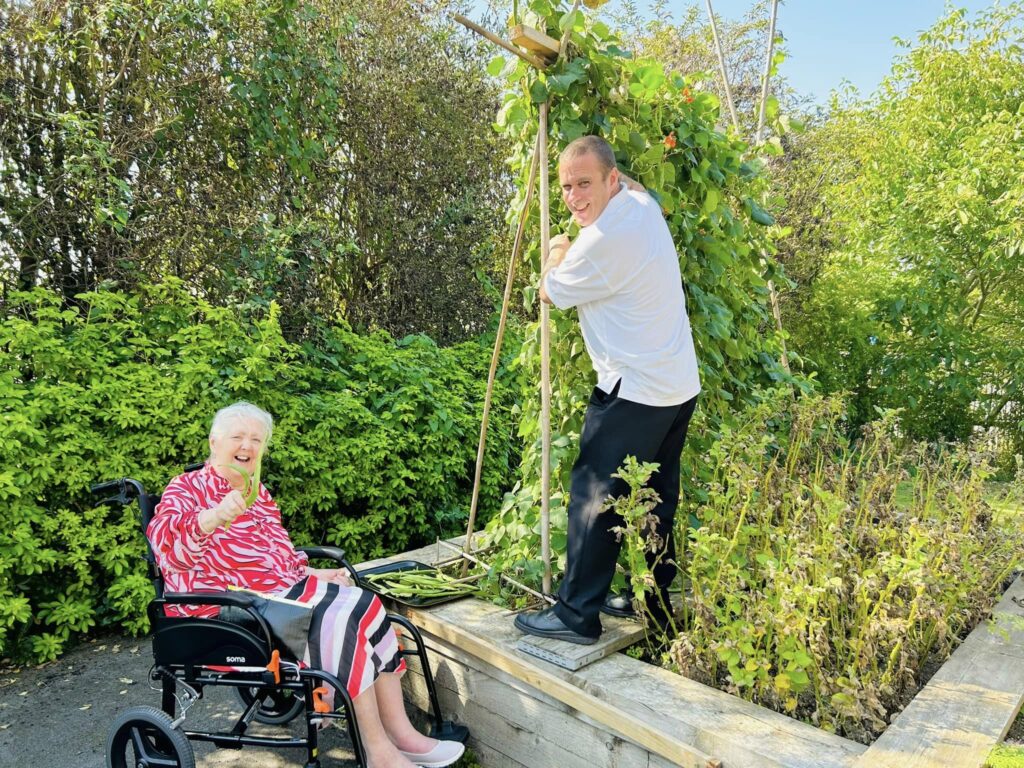What is Residential Care, and Who Does It Benefit?

Choosing the right type of support later in life is one of the most important decisions a person or family can make. Whether it’s due to changes in mobility, long-term medical conditions, or the growing need for daily assistance, many older people and their families begin to explore the idea of residential care.
In this blog, we’ll explore what residential care involves, the services provided within this setting, and how it can improve the quality of life for those who need support, as well as peace of mind for their family.
What is Residential Care?
Residential care is a type of support provided within a dedicated environment such as a care home. A residential care home is specially designed for people who are no longer able to live entirely independently in their own homes but do not necessarily require complex or high-level support. They offer a structured and safe environment where residents receive help with everyday tasks such as personal care, dressing, bathing, taking medication, and preparing regular, delicious meals.
The level of care provided is based on each individual’s needs. Before residents move into a residential care setting, the team will work with them and their loved ones to create a personalised care plan which entails all aspects of their care journey, including their medical history, hobbies, likes and dislikes, typical daily routines and what support will be needed. The focus for residential care is on creating a comfortable and homely environment where residents feel secure, respected and valued.

The Difference Between Residential Care and Nursing Care
One common confusion for those looking for care is the difference between residential care and nursing care. It is important to understand these to know the best type of care for you or your loved one.
While both settings offer 24-hour support, residential care does not typically include ongoing nursing or complex medical intervention. Instead, trained carers provide personal care and support with day-to-day needs. In nursing homes, on the other hand, qualified nurses and registered nurses are on hand around the clock to provide nursing care for those with complex conditions or who require frequent medical attention.
Some care homes, such as dual-registered or all-inclusive homes, provide both care types under one roof. This means that if residents' needs develop to require medical care while they are living there, they can transition between care types and maintain their routines in a familiar and comforting environment.
What Are The Benefits of Residential Care?
Residential care can offer many benefits to people who are finding it increasingly difficult to live independently. Older people may begin to struggle with mobility, memory, managing their medication, or simply feeling lonely and isolated at home. Others may be living with long-term health conditions, low-level dementia or disabilities that make daily life more challenging.
One of the biggest benefits of residential care is the access to a variety of facilities whilst receiving exceptional care. From accessible bathrooms to well-planned communal areas, everything is in place to help older people move around with confidence and feel truly at home. To support their hobbies and interests, some care homes will also have private gardens, a hair salon, an activities program, a cinema room and in-house transport to provide trips out. The environment plays a big part in promoting independence while reducing the risks of accidents or isolation.
Another benefit is having unlimited opportunities to enjoy regular social interaction. Whether it’s chatting over meals, joining in with activities, or simply relaxing in shared spaces, residents benefit from the company of others. This sense of community can have a positive impact on emotional well-being, helping to lift mood and build lasting friendships.
For family members, knowing that their loved one is in a safe, welcoming environment can be a huge relief. The responsibility of providing care at home can be physically and emotionally demanding, and residential care provides reassurance that skilled staff are available at all hours to support the comfort and physical and mental health of every resident.


The Role of Personal Care in a Residential Setting
A key aspect of residential care is supporting residents with personal care tasks. These can include help with washing, dressing, using the toilet, getting in and out of bed, and managing medication. This type of support is always delivered with dignity, compassion and respect for the individual’s preferences and privacy. This supportive environment makes it easier for people to enjoy a better quality of life.
Another important aspect of daily life is eating. In a care home, they will provide a dining experience centred around residents' needs and preferences. Residents don't have to worry about remembering to eat or going to the shop for ingredients because the care home takes care of that for them. They can enjoy peace of mind that there are 3 meals a day provided that aren't just nutritious, but also delicious.
Supporting Their Loved Ones
When someone transitions to residential care, it’s a significant life event not only for them, but for their family too. Family members often worry about whether they are making the right choice, whether their loved one will settle in, and whether they will maintain a good quality of life. Care teams in residential homes understand this, and most are experienced in helping families navigate this transition with empathy and practical guidance.
One of the many benefits of residential care is the peace of mind it brings. Knowing that your loved one is in a caring, supportive environment, with access to skilled staff and all the care services they need, can make a world of difference. Visits are always encouraged, and families will remain closely involved in care planning and day-to-day life so they can continue to make cherished memories with their loved ones.
What to Consider When Choosing a Care Home
At its heart, residential care is about improving quality of life. It’s about more than just providing care; it’s about creating a life worth living, filled with dignity, purpose, and connection. With the right support in place, many residents flourish – enjoying companionship, meaningful activity, and the comfort of a place that feels like home.
When visiting care homes, it is important to ask questions about their care services, facilities, dining options or snack availability, activities and approach to care. We would recommend viewing multiple care homes before coming to a final decision and also being open with the care teams about any questions or worries you have, as they will be able to provide reassurance and assistance with your decision.

Residential Care at Harrier Grange
At Harrier Grange Care Home, we understand that making the move into residential care is a big step – for residents and their families alike. Our care home in Andover provides a warm, welcoming environment where personalised care is at the heart of everything we do. From the moment you walk through the door, you’ll find a calm, comfortable space where residents are supported to live as independently as possible, with all the care and support they need.
Our experienced team are on hand 24 hours a day, providing unrivalled levels of residential care, nursing care, dementia care, respite care and palliative care. They strive to promote independent living whilst maintaining dignity and ensuring our residents know we are here when they need us.
To find out more about our luxury care home or what we can offer to you or your loved ones, get in touch. We can't wait to welcome you to Harrier Grange and show you why we are a leading care home in Andover.





